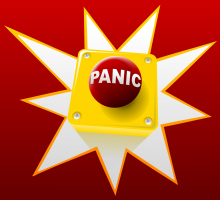Stress is a constant in life. It is the universal pressure we experience when interacting with the social and work world that make continuous demands on our energy and time. Because we frequently experience intense chronic stressors (work, family, relationships), that we have little or no control over, we experience distress or emotional pain.
Learning to cope with your stressors effectively and thereby minimizing your distress begins with identifying the major sources of stress in your life. Unfortunately, this is not always easy. The most basic sources of stress are not generally obvious.
The true or core source of much of our distress is due to our own distress-inducing thoughts, feelings, perceptions and behaviors.
To identify your core sources of stress, look closely at your habits, attitude and excuses:
Do you explain away stress as temporary (“I just have a million things going on right now”)?
Do you define stress as an integral part of your work or home life (“Things are always crazy around here” or as a part of your personality (“I have a lot of nervous energy, that’s all”)?
Do you blame your stress on other people or outside events, or view it as entirely normal and unexceptional?
Until you recognize the role you play in creating and maintaining your stress/distress inducing thoughts, emotions and behaviors, it is unlikely that you will conquer your anxiety.
Learning to cope more effectively with stress/distress involves looking at how you currently cope. If your current methods of coping aren’t contributing to greater emotional health and stability, it may be time to learn healthier ways to manage stress.
Stress management strategies that produce effective approaches to reducing stressful or distressing experiences are important to practice. With the guidance and support of a trained professional, you can develop a number of strategies involving cognitive, emotional or behavioral techniques that help greatly improve your success in managing stressful, distressing situations.
Therapeutic support provides the guidance to learn to avoid unnecessary stress or learn to alter the dynamics in stressful situations. Therapy can help promote a healthier level of acceptance of uncontrollable reality and an increase in accepting and developing your ability to create joy, pleasure and relaxation in your attempt to adopt a healthy, stable lifestyle.

